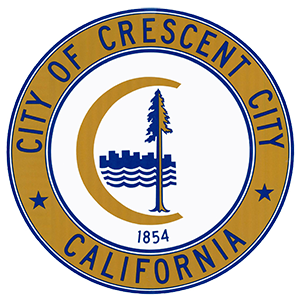Water Quality Lab
The Crescent City Water Quality Laboratory is a CA ELAP certified laboratory (#1465) that provides testing for the Crescent City Wastewater Treatment Plant, the Crescent City Water System, industrial users, public water systems, and private well owners. If you would like to get your water tested you can find our list of Lab Testing Fees, PayGo Instructions, and PayGo Chains in the menu on the left side of this page.
Water Quality Testing Parameters Offered:
Presence Absence - $33.00 Presence Absence tests for the presence of Total coliform and E. coli in your water sample. This test is preferred if you have a well and just want to know if there is bacterial contamination.
MPN Quantitray - $45.00 Tests for the presence of Total coliform and E. coli but attaches a numerical number to it. This test is preferred if you have a stream, spring, source water or well you know is contaminated and want to know if your filters or shock treatments are making a difference in the bacterial density.
pH - $23.00 Tests for how acidic or basic your water supply is.
Explanation of Water Quality Testing Parameters:
Total Coliforms
Coliform bacteria are microbes found in the digestive systems of warm-blooded animals, in soil, on plants, and in surface water. These microbes typically do not make you sick; however, because microbes that do cause disease are hard to test for in the water, “total coliforms” are tested instead. If the total coliform count is high, then it is very possible that harmful germs like viruses, bacteria, and parasites might also be found in the water.
Fecal Coliforms / Escherichia coli (E. coli)
Fecal coliform bacteria are a specific kind of total coliform. The feces (or stool) and digestive systems of humans and warm-blooded animals contain millions of fecal coliforms. E. coli is part of the fecal coliform group and may be tested for by itself. Fecal coliforms and E. coli are usually harmless. However, a positive test may mean that feces and harmful germs have found their way into your water system. These harmful germs can cause diarrhea, dysentery, and hepatitis. It is important not to confuse the test for the common and usually harmless WQI E. coli with a test for the more dangerous germ E. coli O157:H7.

